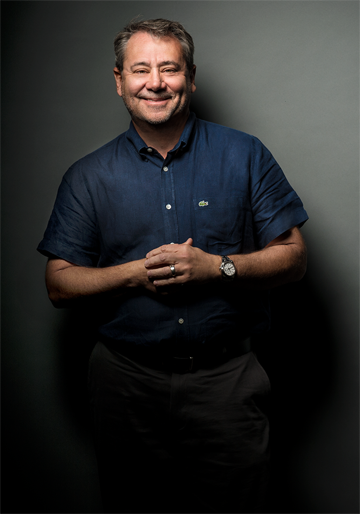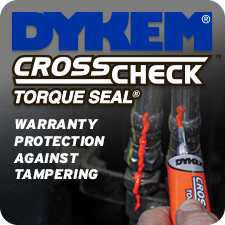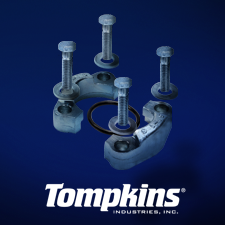Bill Weisberg reflects on AD's new ownership structure
by Rich Vurva
Like many owners of privately held AD member companies, chairman and CEO Bill Weisberg realized the importance of having a succession plan.
 AD stakeholders, including distributor members, suppliers and employees, deserved to know that the organization had a plan in place for the day when he is no longer at the helm.
AD stakeholders, including distributor members, suppliers and employees, deserved to know that the organization had a plan in place for the day when he is no longer at the helm.
“Like most people, I've spent most of my energy working in the business and growing the business and building a team,” Weisberg said recently in an interview with Industrial Supply magazine. “As I grew older, I started to think a lot more seriously about my responsibilities to the business and what things would be like if something happened to me and what would come after me.”
AD’s recent announcement of the transition of ownership from Weisberg to the buying group’s distributor members was the culmination of work that began in the fall of 2017, when AD’s board formed a special committee to plan the transition. Part of that effort was to take a serious look at corporate succession and how the business would be owned and operated long into the future.
“It's important to deal with these matters well before you're intending to depart, because there's a lot of work to do,” Weisberg said. “The work that we did on the corporate succession was complicated and detailed. If that had been left to be done by the board and my staff if something happened to me, that’s not the kind of thing you want them focusing on during a CEO transition.”
Every distributor member, regardless of division or the country in which they are based, had the opportunity during a subscription period to become a shareholder. More than 500 of the members participated.
“One of the things that made the process complicated was that we wanted our Canadian and our Mexican members to be equal owners, so we had to develop a structure to allow that to happen,” he said.
Weisberg became sole owner and chairman of AD in 1991, taking over for his father, David Weisberg, who founded Affiliated Distributors in 1981. At the time, the company focused exclusively in the electrical distribution industry.
Weisberg recalls his first day on the job when he was 27 years old. His father sat in an office with a desk and a conference table, while an executive assistant operated from a vestibule off to the side. “Where’s my desk?” he asked. He was assigned to the conference table.
“I think that was the clue that he wanted me to go out and travel and visit with our members. So, that’s what I did,” Weisberg said.
Over the years, Weisberg worked with members to identify programs and services that would be of value to them and began to build the group and to add a small support staff. The first step was to expand the original buying group business model by adding marketing and sales promotional programs, and later creating networks of members to exchange best practices.
“We developed a reputation for adding a lot of value to the traditional buying group model. Most buying groups had limited themselves just to the rebate portion of the value proposition. While we were always very good at that, we were interested in other ways to help our members grow and become more important to suppliers so they could increase their market share through independent distributors,” he said.

“Over time we looked at the opportunity to move into additional industries and countries that would give us additional scale to invest in services,” he said. “The scale that we've now built through operating in three countries and seven different industries has given us the ability to make investments in some programs and services that most groups would struggle to try to do economically.”
He says that eCommerce is a good example of how members can collaborate to build a solution. Individually the cost of building and maintaining an electronic library or navigating the development of a digital branch are daunting tasks for an independent. “We try to find areas where together we can do a better job than our members could do individually,” he said.
Natural ownership progression
In many ways, Weisberg said that AD has always functioned as a member-owned organization.
“We've always had a board of directors that has been predominantly members. We've had governing committees made up of members. And our staff, myself and my team, have functioned as people who facilitate those discussions and help drive consensus and resolutions.”
Despite being the sole shareholder, Weisberg said he worked hard to involve members and suppliers in decision-making about operations and strategies. The transition to member ownership was a natural progression from a legal standpoint to turn distributor members – the key stakeholders – into shareholders of the company.
“One of the most gratifying parts of my career has been to be able to attract and help develop so many wonderful people. We put a lot of energy into our culture and how we treat each other and how we encourage each other so that we can do a good job serving our members and suppliers,” he said.
Weisberg has no immediate plans to step down as chairman and CEO.
“I'm healthy, and I'm enjoying my work and I feel like I have more to give and more to accomplish. I hope and pray to be able to continue to serve our members and grow the business. But, we're now established in a way that it'd be very natural for someone else to step in and take over those functions.”
He said that members and suppliers like how AD has been functioning and weren’t keen on seeing any radical change. “So, now we can assure members, suppliers and associates that to a great extent business will function as usual, just under different ownership. But our team is in place and our programs and services will continue. Our strategy’s not changing, and that gives people great comfort.”













